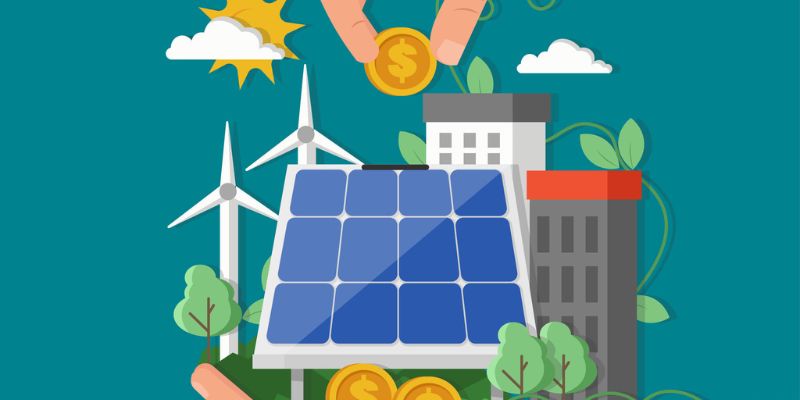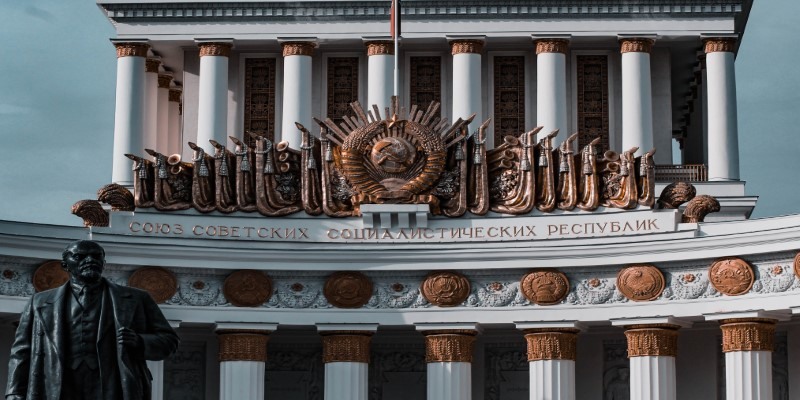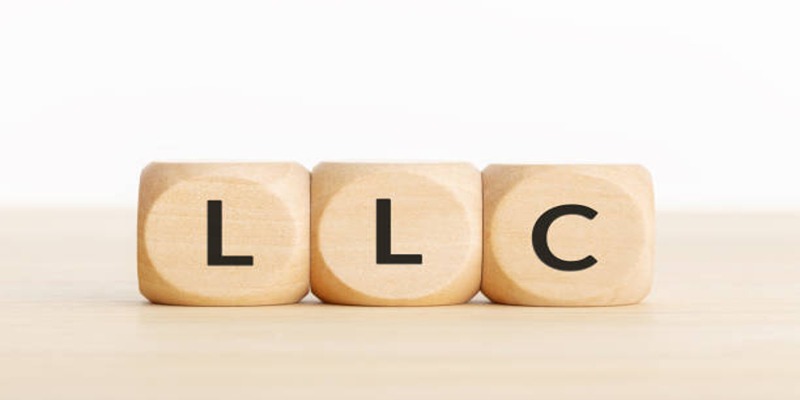
Inflation is an economic concept essential to understand if you want to make informed decisions about financing, investing, and managing your finances. When the prices of goods or services increase over time, we all feel the effects as consumers in our pocketbooks and wallets.
But what exactly does inflation mean for our economy? In this blog post, we will discuss economic inflation and how it affects different areas of the economy, such as businesses, consumers, government programs (or lack thereof), and more.
We'll also provide readers with actionable steps that they can take to protect themselves from its adverse effects.
What is Inflation
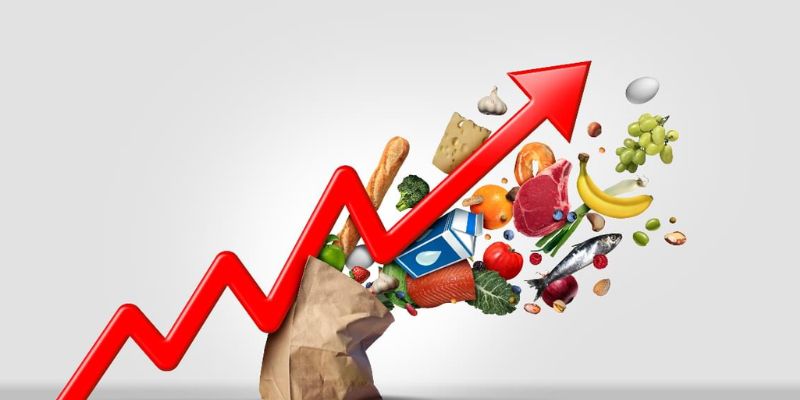
The general rise in prices of goods and services over time that results in a decline in the purchasing power of money is referred to as inflation. In other words, it is the rate of erosion of the value of the currency caused by an increase in the average level of prices for goods and services. Each currency unit buys less than it did earlier when inflation takes place.
What Causes Inflation
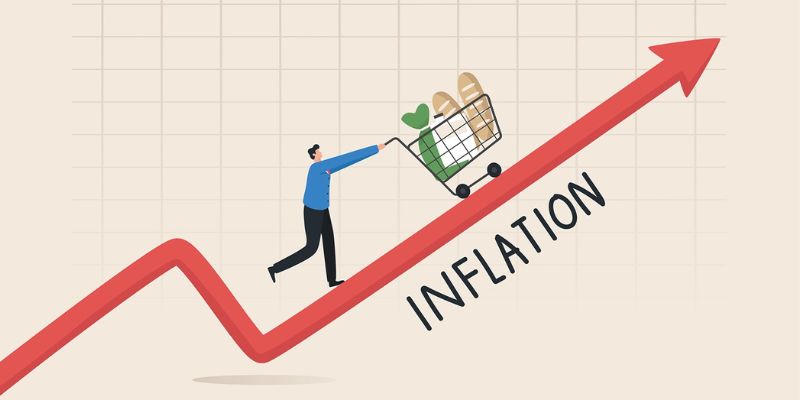
Demand-pull inflation: It occurs when the demand for goods and services exceeds the supply, leading to upward pressure on prices. It often happens during periods of strong economic growth and high consumer spending.
Cost-push inflation: This type of inflation is caused by increased production costs, such as wages or raw materials. When businesses face higher costs, they may pass them on to consumers through higher prices.
Monetary inflation: When there is an increase in the money supply in an economy, it can lead to inflation. If the supply of money grows faster than the production of goods and services, more money is available to chase the same amount of goods, driving up prices.
10 Common Effects of Inflation
Inflation Erodes Purchasing Power
As a result of inflation, a certain amount of money now buys fewer goods and services at a higher price than it did previously. This is a direct result of inflation because it over time reduces the value of currencies.
In other words, due to inflation, consumers must pay more for the same goods and services in order to maintain their quality of living. As a result, even if income stays the same, its purchasing power declines, resulting in a general decline in quality of life.
Inflation Disproportionately Impacts Lower-Income Consumers
Inflation disproportionately impacts lower-income consumers, who often must decide between purchasing food or medical care. While the prices of goods and services increase over time, they can significantly impact families with limited resources.
For example, if a family must choose between groceries and paying rent, inflation makes it increasingly likely that the rent will become unaffordable. The overall decrease in purchasing power among low-income households increases their risk of poverty and economic insecurity.
Thankfully, there are measures that individuals can take to mitigate the effects of inflation on their finances, such as budgeting and saving for emergency expenses. Social programs such as SNAP (Supplemental Nutrition Assistance Program) also assist those who need it most.
Inflation Keeps Deflation at Bay
Inflation helps to protect the economy from deflation, which is when prices of goods and services drop dramatically. When inflation occurs, it increases the prices of goods and services, leading to more consumer spending. This increased spending boosts economic activity and keeps deflation at bay.
By understanding how inflation works, we can better manage our finances and take steps to protect ourselves against its negative effects.
Inflation Feeds on Itself When It's High
When inflation is high, it begins to feed on itself. This means that people cannot spend or save money as prices increase, leading to higher prices due to increased demand and limited supply.
As a result of this vicious cycle, businesses may suffer from lower profits, and consumers experience reduced purchasing power. To counter this effect, governments can take action by increasing their budget for programs and services that benefit the population.
Additionally, central banks have tools such as interest rate changes to manage inflation levels. By understanding the effects of inflation on the economy, we can all make informed decisions about our finances.
Inflation Raises Interest Rates
Inflation causes interest rates to rise as well. When prices increase, the demand for borrowing money increases, and lenders require a higher rate of return to cover their expenses. This means that businesses and consumers pay more when they borrow money, creating an additional strain on their finances.
This can sometimes make it difficult or even impossible for some people to access credit. Inflation can have significant financial implications on businesses and individuals if not properly managed.
Inflation Lowers Debt Service Costs
Inflation can also positively affect the economy by reducing debt service costs. This is because as prices increase, the real value of government debt decreases. When inflation is high, governments can repay their debts with cheaper money in terms of purchasing power.
Additionally, businesses benefit from lower interest rates on loans and investments when there is an increase in inflation. As a result, businesses have more capital available for expansion, research and development projects, and other activities that help drive economic growth.
Inflation Lifts Growth & Employment in the Short Term
Inflation can have both positive and negative effects on the economy. Inflation often helps stimulate economic growth and employment in the short term. When prices increase, businesses can charge more for their goods or services, allowing them to hire additional employees to meet rising demand.
This increased spending then has a 'ripple effect' that also helps other businesses in the area, leading to further job creation and economic growth. Although this short-term boost is beneficial, it can lead to long-term problems if not managed properly.
Inflation Can Cause Painful Recessions
Inflation can cause painful recessions if it gets out of control. If prices rise too quickly, consumer spending and investment activity decline, resulting in decreased economic growth or recession.
To prevent this from happening, governments usually try to keep inflation within an acceptable range through monetary policy adjustments and fiscal stimulus programs. Unfortunately, these measures can sometimes be ineffective in controlling inflation, causing serious harm to the economy.
Inflation Hurts Bonds & Growth Stocks
Inflation can be especially damaging to long-term investments like bonds and growth stocks. Since bond investors are paid a fixed income, inflation reduces the value of their returns over time.
Growth stocks depend on economic growth, so they also suffer when inflation slows down economic development. Investors should watch for rising inflation and adjust their investment strategies accordingly.
Inflation can potentially harm long-term gains in these areas, so it's important to remain aware of its impact on your portfolio. Additionally, those seeking short-term gains may consider commodities such as gold or silver safe havens from inflationary pressures.
Inflation Boosts Real Estate, Energy, & Value Stocks
Inflation can have a positive effect on certain areas of the economy. For instance, inflation boosts real estate, energy, and value stocks. Rising prices make it easier for businesses to borrow money to purchase properties or invest in new technology.
It also increases households' spending power, allowing them to buy homes and increase their investments in different market sectors. Consequently, companies specializing in these particular industries could benefit from increased demand and higher profits due to inflation.
In addition, value stocks tend to outperform during periods of inflation due to their high dividend yields and relatively low share prices compared with other types of securities.
FAQs
Who benefits from inflation?
Inflation benefits people who own stocks, property, and real estate. In addition, those on fixed incomes (retirees or pensioners) also tend to benefit from inflation since their income is not adjusted with rising prices.
Who does inflation hurt the most?
Inflation hurts those with fixed incomes the most since their income cannot adjust to keep up with rising prices.
What is the cost of inflation?
The cost of inflation can be expressed in terms of lost purchasing power. Inflation erodes the purchasing power of individuals as goods and services become more expensive. This increases the cost of living and can make saving money or making long-term financial plans harder.
Conclusion
Inflation has a wide range of positive and negative effects on the economy. Though it can potentially lift growth in terms of jobs and even debt service costs, it can also lead to recessions, lower purchasing power, and deflation. Lower-income consumers are disproportionately impacted as well. When faced with inflation, central banks must carefully consider all these factors as they look for solutions. Those who invest must understand how inflation affects their portfolios and adjust accordingly.





